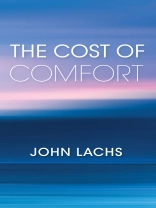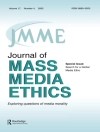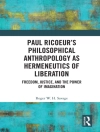Philosopher John Lachs observes that humans today live lives of comfort but also sees that these comfortable lives come at a cost: our increasing unhappiness. In The Cost of Comfort, Lachs contemplates what humans need in order to live fulfilled lives in today’s world. While comfort has not always reached everyone evenly, Lachs acknowledges that most of us who live in the US today reap the benefits of modern life. We live longer, we eat better food, we have access to good medical care, and we can stay in touch with loved ones who are far away. Lachs argues that this dizzyingly complex world often inspires isolation, but he believes that deeper engagement with it is required in order to dispel our growing psychic distance. Lachs advocates for mediation and champions education, advertising, openness, and transparency to help individuals understand the role they play in society and to nullify claims to blamelessness. Lachs suggests new rules for responsibility and argues that examining and understanding the consequences of one’s actions is imperative to overcoming the ills and problems of the modern world.
Зміст
Preface
1. Comfort
2. Discomfort
3. A Broken and an Integrated World
4. Complete and Dismembered Actions
5. Mediation
6. Philosophical Excursion: Hegel and Peirce on Mediation
7. Five Consequences of Mediation
8. (A) Passivity
9. (B) Impotence
10. (C) Ignorance
11. (D) Manipulation
12. (E) Psychic Distance
13. (F) Irresponsibility
14. Major Mediators: Tools
15. Major Mediators: Language
16. Major Mediators: Ideology
17. Major Mediators: Institutions
18. Major Mediators: Government
19. Mediated Immediacies
20. Eliminate Mediation?
21. Ineffective Ways of Dealing with Mediation
22. Pre-Existing Values
23. Advertising
24. Openness
25. Transparency
26. Education
27. The Power of Immediacy
28. Immediacy and Politics
29. New Rules of Responsibility
Conclusion
Про автора
John Lachs is Centennial Professor of Philosophy at Vanderbilt University. He is the author of many books, including Meddling: On the Virtue of Leaving Others Alone and Stoic Pragmatism.












